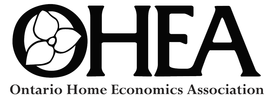|
By: Mary Carver, P.H.Ec. Each year, the United Nations (UN) allocates a calendar theme to bring awareness to a cause of international significance. 2013 has been declared International Year of Quinoa and International Year of Water Co-operation. It is not uncommon for a year to share two or more related themes. Both 2013 themes address human health. Food and water are equally essential for our existence. Food and water security are issues of major concern to Home Economists who work to assist people to achieve and maintain a desirable quality of life - in Canada and around the world. While the majority of Canadians have not experienced inadequate supplies of food or safe water, we know that many in our world are lacking nutritious, affordable food and drinkable water. The International Year of Water Co-operation recognizes that ‘water is critical for sustainable development, including environmental integrity and the eradication of poverty and hunger, and is indispensable for human health and well-being.’
In a release, the UN states that 2013 will focus on ‘lessons that can be learned from successful water co-operation initiatives. It will also emphasize key water management issues such as water education; water diplomacy; sharing of water resources across national and community borders; and national and international legal frameworks on the use, and sharing of water.’ World Water Day celebrations on March 22 and World Water Week in August will be devoted to the theme of water co-operation around the world. Surely this focus will alert Canadians to our often wasteful habits. Similarly, The International Year of Quinoa (IYQ) aims to focus world attention on the ‘nutritional, economic, environmental and cultural value of quinoa,’ a seed originally cultivated for food in the Andes, primarily in Peru, Bolivia, and Ecuador. The main objective of designating 2013 as the IYQ is to raise awareness of how quinoa can provide nutrition, increase food security, and help to eradicate poverty around the world. Complimenting this year’s theme, the UN has released an IYQ slogan – ’A future planted thousands of years ago’, recognizing the contribution of the Andean indigenous people as the original custodians of quinoa. Quinoa is gluten free and contains high-quality protein, complete with all essential amino acids. The crop appears to adapt to different ecologies, making it easy to grow in a variety of climates and soils. According to the Food and Agriculture Organization of the UN, ‘Quinoa has a remarkable adaptability to different agro-ecological regions. It can grow at relative humidity from 40% to 88%, and withstands temperatures from -4 ° C to 38 ° C. It is a highly water efficient plant, is tolerant and resistant to a lack of soil moisture, and produces acceptable yields with rainfall of 100 to 200 mm.’ Ontario Ministry of Agriculture and Food and Rural Affairs has been working in partnership with others to find the most suitable growing conditions for quinoa. Several experimental plots were set up in areas near Campbellville, Peterbourgh, Matheson and Cobden in 2012. Quinoa harvests were most encouraging despite uncommon heat and drought conditions in parts of the province. Quinoa’s nutritional importance and adaptability propose great potential in areas where ecological conditions do not readily support other food crops, and in regions of the world where animal protein is not significantly featured in the diet. If quinoa can be grown successfully on more continents and people are educated in its use and nutritional value, could we address world hunger more adequately? While some are still learning to pronounce the word quinoa (kéen-wa), others are increasingly and creatively incorporating this superfood into their diets from breakfast to dinner. Members of the Ontario Home Economics Association authored The Vegetarian’s Complete Quinoa Cookbook (Whitecap -2012) with consumer education foremost in mind. As more and more people learn to use quinoa, the news and accolades of its versatility and goodness will continue to make headlines. As we reiterate ‘Happy New Year’ messages, let us be mindful of the inspiring UN memo of hope for food and water security. Can we be more conscious of our own use or misuse of food and water and the need for a world without hunger and thirst? Mary Carver, P.H.Ec., is an Ottawa-based Professional Home Economist and member of the Ontario Home Economics Association. The Ontario Home Economics Association (OHEA), a self-regulated body of Professional Home Economists, promotes high professional standards among its members so that they may assist families and individuals to achieve and maintain a desirable quality of life. The Vegetarian’s Complete Quinoa Cookbook (Whitecap -2012) is available at all major bookstores. For further information, please contact: Ontario Home Economics Association, 14 Totten Place, Woodstock, ON N4S 8G7 Website: www.ohea.on.ca e-mail: [email protected] Ontario Home Economics Association © 2013
1 Comment
4/12/2013 08:44:01 pm
This a wonderful way to spread the information to local people and may be through this effort many people come to know about this co-operation.
Reply
Leave a Reply. |
The Ontario Home Economics Association, a self-regulating body of professional Home Economists, promotes high professional standards among its members so that they may assist families and individuals to achieve and maintain a desirable quality of life. Categories
All
Archives
April 2024
|
|
Subscribe to our mailing list
|
|
Unsubscribe from our mailing list
|
Copyright © 2023 Ontario Home Economics Association (OHEA). All Rights Reserved.


 RSS Feed
RSS Feed